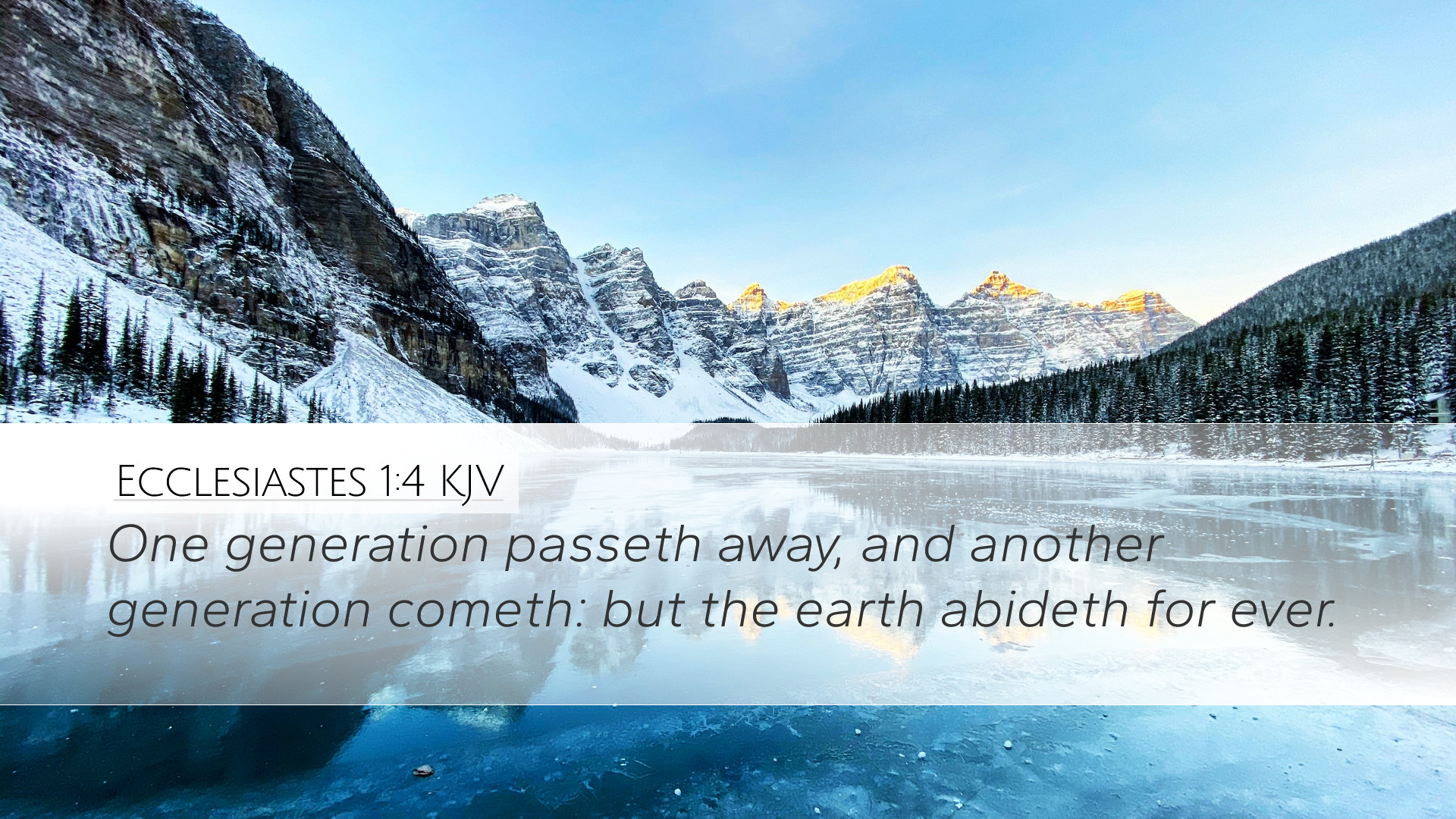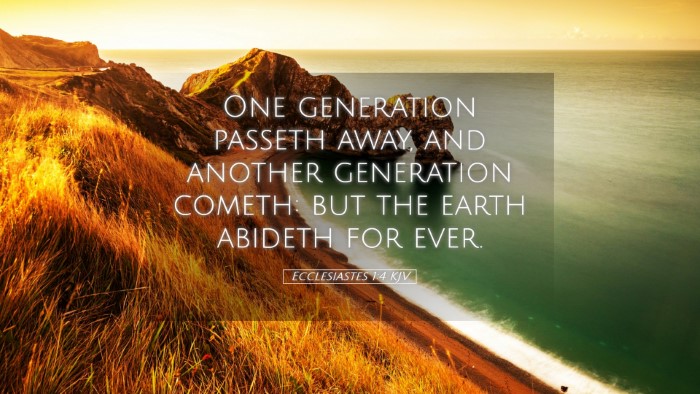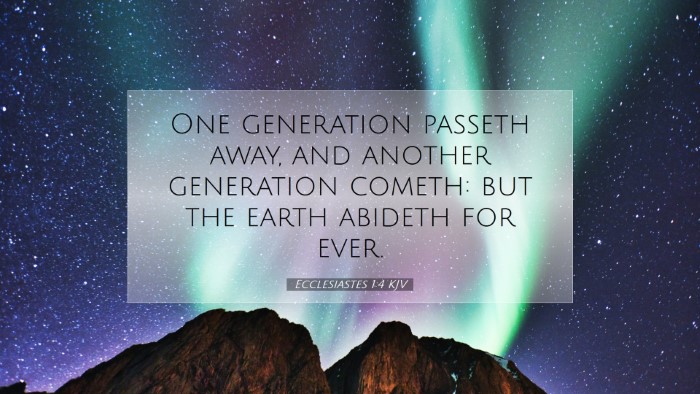Commentary on Ecclesiastes 1:4
Bible Verse: "One generation passeth away, and another generation cometh: but the earth abideth for ever."
Introduction
The verse from Ecclesiastes 1:4 introduces a central theme of the book: the inevitable cycle of life and the transient nature of human existence. This reflection is not only pertinent for individuals seeking meaning in their personal lives but also serves as an important commentary on the broader human condition. The observations made by the author, traditionally understood as King Solomon, remind us of the continuity of creation amidst the fleeting nature of individual lives.
Contextual Background
In the poetic structure of Ecclesiastes, the verses unfold a philosophy that grapples with questions of existence and the meaning of life. This particular verse connects a vast generational narrative with the unchanging earth, pointing to a philosophical contemplation that preoccupies both the faithful and the seeker of wisdom.
The Generational Cycle
The first part of the verse, "One generation passeth away, and another generation cometh," encapsulates the continuous cycle of life. Each generation replaces the one before it, emphasizing the transient nature of human existence.
- Matthew Henry: In his commentary, Henry reflects on how this passage illustrates the brevity of life and the swift transition from one generation to the next, urging readers to ponder the significance of their time on earth.
- Albert Barnes: Barnes expands on this idea, noting that this cycle of generations highlights the impermanence and futility of human endeavor without a divinely appointed purpose.
- Adam Clarke: Clarke emphasizes the inevitability of death as a factor that unites all humanity across generations, thus inviting a deeper consideration of one’s spiritual circumstances amid the temporal nature of life.
The Eternal Nature of Creation
Conversely, the latter part of the verse, "but the earth abideth for ever," presents a stark contrast to the ephemeral nature of human existence. While individual lives rise and fall, the earth itself remains constant.
- Matthew Henry: He posits that the longevity of the earth serves as a testament to God's creative power and the permanence of His plans, despite the transient nature of humanity.
- Albert Barnes: Barnes interprets this as an affirmation of God’s sovereignty over creation, suggesting that while human lives are fleeting, God's creation endures, offering stability in a world of change.
- Adam Clarke: Clarke notes that the permanence of the earth should incite a reflection on our purpose and legacies, emphasizing the need for human endeavors to align with eternal values rather than temporal pursuits.
Theological Implications
This verse raises questions concerning the nature of existence and the role of humanity within the created order. The tension between the transience of life and the permanence of the earth leads to significant theological considerations:
- Human Mortality: The acknowledgment of mortality is a springboard for deeper explorations of what it means to live a significant life in light of the eternity of God’s creation.
- Covenantal Relationship: The contrast further amplifies the importance of a covenantal relationship with God, which transcends generations and ties individuals to a greater divine narrative.
- Purpose and Legacy: Believers are encouraged to seek purposes that have lasting impact, understanding that their time on earth is an opportunity for meaningful contributions.
Practical Applications
For pastors, theologians, and students, this verse can be a pivotal point for sermons, studies, and discussions on living purposefully within the acknowledged brevity of human life. The following applications can be drawn from this passage:
- Encouragement to Reflect: Encourage congregations to reflect on their lives, urging them to consider their values, priorities, and the legacy they wish to leave.
- Focus on Eternal Truths: Highlight the importance of focusing on eternal truths and the lasting word of God amidst the chaos and changes in life.
- Generational Impact: Foster a mindset that appreciates the importance of mentoring and guiding younger generations in faith, highlighting the interconnectedness of humanity across time.
Conclusion
Ecclesiastes 1:4 serves as a profound reminder of human mortality juxtaposed with the enduring nature of creation. Through a synthesis of the insights from Matthew Henry, Albert Barnes, and Adam Clarke, we see that the passage invites us to grapple with our place in a cyclical existence while urging us to establish a legacy connected to eternal truths. The exploration of these themes is crucial for understanding not just the text but the human spirit's struggles, seeking meaning and significance in the fleeting moments of life.


